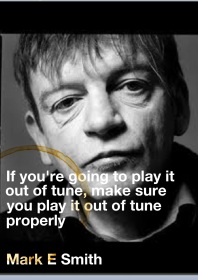During our monthly TLCs at Temple Moor we have recently been focussing on student ownership of learning – alongside this the Learning Team have been working hard on designing and implementing a creative, realistic and purposeful assessment policy for the whole school and faculties.
For me the term assessment or marking can lead to a confused message – we need to focus on feedback, specifically the quality of feedback given either by teachers or by students to each other. Peer assessment is obviously an important part of feedback and as Black and William (2009) stated one of the five major strategies for effective assessment for learning is “activating students as the owners of their own learning”. But how many times in a lesson during a self assessment activity is the feedback written or articulated by the students ineffective? I like encouraging my students to read each others work, think about it and then give feedback to each other (in my mind, that’s what post it notes were invented for!) but can I honestly say that the feedback given by my students is formative and will have impact on their peers learning? I’ve spent time discussing the importance of giving formative comments, asking students to “pretend to be a teacher”, encouraging students to tell each other how they can improve…….but to be fair I haven’t seen much difference in the quality of the feedback.

…the usual comment – does the missing “it” also show that students don’t put a great deal of time and effort into their comments for each other?
Public Critique
A huge thank you to Darren Mead and Neal Watkin for showing me the way on this.
Ron Berger’s model of Public Critique generally includes either a Gallery Critique (where every student’s work is displayed and examples are looked at and discussed) or an In-Depth Critique (where the work of a single student is critiqued by the class). I have adapted it slightly for the purpose of self assessment, where one student will critique the work of another student.
In Berger’s own words “I think that the typical strategy of pairing off kids to critique one another is not often particularly useful unless it’s preceded by a formal class critique that gets students focussed and excited about a specific dimension of writing” I took these words on board and after the self assessment used the visualiser to display certain pieces of work with the critique attached, to encourage discussion, objection and agreement.
As always on this blog, I’m only writing about stuff that has worked and had impact in my classes. I trialled this extensively with my favourite Year 9 “bottom” set OCR class – their GCSE targets range from F to D. We were completing an OCR booklet on effective Storage and Waste Removal. The students had just completed a page in their booklet after completing a practical and class discussions. I asked the students to swap over their work and assess each others work and give comments that would help their peers. But this time we used Ron Berger’s Three Public Critique Rules.
- Be Kind
- Be Specific
- Be Helpful
The details of these simple yet brilliant rules can be found here;
So after explaining the reasons behind it to my students and after discussing why we should use Public Critique and after sharing ideas on how we would actually do it (I can’t stress enough the importance of this part of the lesson – this bit was key to the success) we had a go!
The results were very different to the usual Peer Assessment comments given previously (see above).
….and the impact, well good actually – the majority went from a below “PASS” standard to a solid “PASS” standard (a PASS standard at OCR is equivalent to two C grades at GCSE). Did the Public Critique help? Yes, I think it did tremendously – but only after we spent a significant amount of time discussing as a class why we should be doing it and how it could help us improve.
However one of the key aspects of the success was that I allowed my students to have a significant amount of time reading the feedback, calling the ‘critic’ over to discuss the feedback in more depth, asking for more assistance from their learning partners and reflecting on the feedback. This is absolutely essential for using feedback to improve our learning.
I have put together a Google Presentation on Feedback here
I would be extremely interested to hear how you in your class, faculty and your school use feedback to improve learning.














